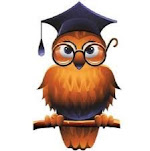The Last Intellectuals: American Culture in the Age of Academe, By RUSSELL
JACOBY. (New York: Basic Books, Inc., 1987. xiv, 290p. Index. Insurance executives can write fine poetry; Harvard professors can toss off ringing calls for revolution," writes Russell Jacoby in this challenging book. "In general, neither do" (p. 23). With wit and erudition, he goes on to describe the "impoverishment" of American intellectual life during the past two decades. His heroes are the "public intellectuals" who flourished from the 1930s into the early 1960s, his targets those who abandoned this calling for the comforts of academe, and, more particularly, a "missing generation" who came of age during the sixties but have failed to keep alive this earlier tradition.
For Jacoby, intellectual life during this century has seen three successive generations, comprised roughly of individuals born around 1900, 1920, and 1940. The first or "classical" generation included Lewis Mumford and Edmund Wilson, while a second or "transitional" one numbered such figures as Alfred Kazin, Daniel Bell, and Irving Howe. Members of the former "never or rarely taught in universities" (p. 17); the latter typically moved in mid-careers to some institutional affiliation. In contrast, would-be spokesmen of the "missing generation"—the sociologist Richard Sennett, for
example—have spent their entire careers within the universities. The result, Jacoby argues, has been an intellectual landscape strewn with trivial monographs, bad writing, and sloppy thinking.
Jacoby's pointed judgments enliven often lengthy lists of individuals. Unlike some of the timid academics he derides, he names names, among them some of the most respected of an older generation of New York intellectuals. Thus, the Columbia literary critic Lionel Trilling was "distinguished by the cadence of his prose and his measured liberalism, not the brilliance, originality, or force of his thought" (p. 25). Although the philosopher Sidney Hook "specializes in politico-cultural stances," he has not since the 1930s "produced an original and coherent philosophical work"
(p. 106). The efforts of the "missing generation" come in for even harder knocks; Jacoby describes the work of Sennett, for example, as "drab and pretentious, even sloppy" (p. 210).
Although Jacoby analyzes few works in depth, his standard often appears to be political or social, rather than intellectual or aesthetic. Jewish radicals, he tells us, are more likely than their non-Jewish counterparts to trade in "their red pasts for blue chip careers" (p. 87). His special heroes are the Edmund Wilsons and C. Wright Millses; his tarnished transitional, a Lionel Trilling, the first tenured Jew in Columbia's English department, who possessed an overdeveloped sense of accommodation and a fondness for terms like "scarcely," "modulation," and "our educated classes." Sidney Hook, likewise, labors under a cloud of his excessive anticommunist zeal.
True to its central theme, The Last Intellectuals, here as elsewhere, is suggestive rather than scholarly: an arbitrary list of Jewish intellectuals who deserted their radical pasts "seems" shorter (p. 88) than one of their non-Jewish counterparts.
The concept of the "public intellectual," although ostensibly neutral, is also tinged with Jacoby's political convictions. In its broadest meaning, the term describes that class of individuals, whether on left or right, who sought and addressed "a general and educated audience" (p. 5) on matters of social and cultural importance—John Kenneth Galbraith or William F. Buckley, no less than Irving Howe and others on the left. But his focus is clearly on the latter, whether those who abandoned the cause or those representatives of the 1940 generation who vanished intellectually—Tom Hayden, for example, or the others whom Jack Newfield once labelled A Prophetic Majority (1966). Jacoby begins his study with Harold Stearns's question of 1921: "Where are our intellectuals?" But, more precisely, the book evokes the subject of another symposium of the 1920s, "Where are the Pre-War Radicals?"
However one phrases the question, Jacoby's explanations hold few surprises. Among broader social changes, the culprits are an unholy trinity ofmodern America: Moses (Robert), malls, and mass media. Together these have produced a reconstruction of cities, the rise of suburbia, and the decline
of a "reading public." Since the 1940s, the cultural void has been filled by the emergence of the university as the ubiquitous agency of intellectual life. Displaying again his instinct for the jugular, Jacoby views the latter development less as a result of impersonal forces than of the intellectuals' weakness for the three S's of academic life—"salaries, security, summers" (p. 14). At one point, he hints that an additional fact may well be that the Left (old or New) has little to offer: they are, to say the least, "out of step" (p. 4). But the point is not seriously explored. An apparent confusion in the author's political agenda also muddies the analysis. Does the problem lie in the fact that academe now embraces groups it earlier excluded (Jews, women, and radicals in particular)? Or in continuing threats to academic freedom? Can it be that new issues have legitimately eclipsed the old? Given the prominence and vitality of feminism and gender-related issues, for example, their virtual absence here (save a passing reference to Betty Friedan's The Feminine Mystique) may explain why Jacoby has read so few good books lately.
Although Jacoby would wince, the pedant in me recommends that The Last Intellectuals be read along with Alexander Bloom's Prodigal Sons (1986), Alan M. Wald's The New York Intellectuals (1987), and other recent studies of many of these same figures. Meanwhile (perhaps the unkindest cut) I think what a fine text it will make for my course in recent intellectual history. But Jacoby's message finally transcends courses and syllabi. Whether or not one shares his political agenda, or his distaste for highways and malls, the book clearly enriches public discourse and addresses the wide, educated audience whose demise it laments. In this sense, The Last Intellectuals provides its own best evidence that all is not lost after all.
Source: https://journals.psu.edu/pmhb/article/view/44402






















Hiç yorum yok:
Yorum Gönder